The American Revolutionary War was a war Britain seemingly should have won. Its failure is popularly blamed upon the incompetence of the political and military leaders who have consequently become objects of satire. This is particularly true of portrayals in the movies and media which of course have a greater impact on perceptions than books. It is apparent in popular history like Barbara Tuchman’s The March of Folly: From Troy to Vietnam (1984). It even permeates scholarly writing and especially college textbooks. It is a common trope on both sides of the Atlantic. It is a curious idea because it diminishes the achievements of George Washington and Nathanael Greene. It also deflects from fully appreciating the essence of the war. This is a list of ten key political and military decision makers who presided over the British loss of America. It is based upon my recently published book in which the ten biographical chapters are interlinked along a timeline which cumulatively explains why Britain lost America.
George III (1738-1820)
George III was not the tyrant depicted in the Declaration of Independence. He had little responsibility for British policy towards America before 1774. He may though still qualify as a villain to Americans. After the Boston Tea Party, he became the leading proponent of punishing the rebel colonies. His attitude hardened from the emerging conviction that the crisis was caused by too much lenience towards the colonies which he believed had created the impression of timidity on the part of Britain. Indeed, he became the chief driving force of the war. He effectively prolonged the conflict by refusing either to let Lord North resign or to negotiate with opposition leaders like the earl of Rockingham who were committed to ending the war. He kept the government together by dint of his forceful personality and tenacity. He sounded almost Churchillian. He vowed that he would never surrender, calling for sacrifice, enlisting one of his youngest sons in the navy and changing his favorite royal retreat from a modest palace to a castle – Windsor Castle. He wanted to continue the war even after Yorktown. He twice nearly abdicated rather than accept the loss of America. He was passionate because he believed – together with many of those who opposed the war – that Britain would cease to be a great power if it lost America.
Lord North (1732-1792)
The worst insult to this day in the House of Commons is to accuse the leader of the government as being “the worst Prime Minister since Lord North.” North will always be associated with the coercive policies that led to the American Revolution and the loss of America. It is the great irony of his career.
North inherited a revolutionary situation in America which climaxed in the Boston Massacre. He initially did much to diffuse the situation. It was the Boston Tea Party that caused North to adopt a tougher approach to America in the Coercive Acts (1774). He enjoyed overwhelming support in Britain. However, when it became apparent that resistance was widespread in America, North soon began to waver and consistently attempted to negotiate a compromise for much of the rest of the war. Despite the opposition of George III, North insisted upon introducing his own Conciliatory Proposal (1775) and eventually offered terms which conceded every demand in return for token British authority over America in the Carlisle Peace Commission of 1778.
North was actually an exceptionally capable and gifted administrator, party manager and brilliant parliamentary speaker. He was a particularly able finance minister who managed to sustain the funding of the war. He had a disarming charm, wit and urbane manner that won him the admiration of critics. He was a successful mediator and broker within the government which otherwise might have fallen apart. He was the only politician who was acceptable to George III and who commanded the majority of support in the House of Commons. He protested to his last days that he had constantly tried to resign throughout the war but was never permitted by the King.
General Sir William Howe (1729-1814) and Admiral Lord Richard Howe (1729-1814)
Sir William Howe was selected over the heads of one hundred and ten more senior generals to command in America in 1775. He was an expert in light infantry tactics which should have made him ideally qualified for the unconventional warfare in America where he had served with distinction during the French and Indian War. He won the battles that he commanded forcing Washington to retreat from New York and New Jersey. He also had the advantage that his brother Richard commanded the navy which created the potential for successful amphibious attacks against any coastal area of America. He had the best chance to win of any British commander in America.
Sir William Howe has mystified historians by his failure to press his advantage in 1776. This was initially a consequence of conflicting objectives. He had opposed the coercive policies that caused the American Revolution, preferring to offer the olive branch and to delay military action while making peace overtures. He also needed to preserve his army which could not afford to repeat the fatality rates that it had suffered at Bunker Hill. His attitude and strategy changed after the battle of Trenton when he aggressively pursued outright military victory and he succeeded in conquering Philadelphia. The prize proved elusive owing to the patriot victory at Saratoga (1777). Howe was instead blamed for his failure to reinforce Burgoyne. He would in turn blame the failure of the home government to send him explicit orders, an accusation which was to help foster the idea that the war was lost through incompetence. His career and that of his brother remind us that the line between success and failure is often very thin. Admiral Lord Howe would later emerge as one of the most celebrated naval heroes in Britain before Nelson.
General John Burgoyne (1722-1792)
Burgoyne is the subject of more biographies than any other British commander in America during the Revolutionary War. His theatrical personality, his carefully manicured appearance, his bravado and vanity perfectly suit the stereotype of aristocratic dilettantes who lost America.
His image was very different at the time of his appointment when he was a rising star known as an original thinker and innovator. He had created the first light horse units in the British army. He was credited with the successful defense of Portugal against Spain in the Seven Years’ War. He had written a treatise on the duties of an officer which recommended treating soldiers well and avoiding frequent corporal punishment. It was due to his humanity that he was affectionately known by his troops as “Gentleman Johnny.”
Burgoyne was also a playwright and keen amateur actor who had a felicity with language and dramatic flair that enabled him to win support for a plan that promised victory in America through an invasion from Canada. His self-promotional skill convinced George III and Lord George Germain who were already disappointed with the pace of the war and the caution of Sir William Howe. It offered precisely the bold stroke that they were so eager to accomplish. Burgoyne initially seemed to deliver what he had promised. He managed to begin operations within six weeks of his return to Canada. He captured Crown Point and Fort Ticonderoga, regarded as the key to control Lake Champlain and New York. His ultimate failure at Saratoga helps explain the wider British defeat in America. He had anticipated little opposition after capturing Fort Ticonderoga. He was outnumbered by four to one when he surrendered at Saratoga. It was politically expedient for him to blame Lord George Germain. The subtext of the evidence that he was to present in his defense was that failure was inevitable because Britain lacked the necessary support of the civilian population in America.
Lord George Germain (1716-1785)
Lord George Germain, the Secretary of State for America and the main architect of the Revolutionary War in Britain, is the most popular target of blame for the British defeat. He was the perfect scapegoat as a reputed homosexual who carried the fatal stigma of having been pronounced unfit for military service at a court martial for his actions at the Battle of Minden (1759).
Germain told Edward Gibbon that he sought to vanquish the memory of Minden by victory in America. He was a gifted bureaucrat who was skilled in managing the cumbersome system of eighteenth-century administration to provide shipping, supplies and soldiers for America. He was one of the most able speakers in defending the record of the government in the House of Commons. He well understood that he was too far away to attempt to manage the war and that sudden developments might change conditions before he could send orders from Britain. He therefore gave wide discretion to his commanders to act on their own initiative and deferred to the plans proposed by the generals in the field.
Germain contended against major constraints upon his authority that are generally unappreciated in the assessment of his character. He was hampered by the disunity and vulnerability of the government. He had no direct control of the navy when combined operations with the army were essential to success in America. He could only recommend and advise on military policy to which he had to defer to the cabinet. His ability to reinforce and supply the army was limited by the rising cost of the war, the budget available to him, and the opposition to higher taxes. He had to work with an administrative apparatus that was not equipped for the unprecedented endeavor of supplying an army across the Atlantic. To the chagrin of commanders in America, he was obliged to deflect military resources from America to the Caribbean and to Canada.
Germain succeeded in sending his commanders more troops than they had requested to New York and Canada in 1776. He argued that the best chance of success was a knock-out blow against Washington. It is a view widely shared by modern military commentators who believe it did indeed represent the best chance for the British to be victorious in America.
General Sir Henry Clinton (1738-1795)
General Sir Henry Clinton had been a brilliant second-in-command to Sir William Howe. His withering critiques of his superior remain the most incisive accounts by a contemporary of the strategic shortcomings of the campaigns of 1776 and 1777. He foresaw and tried to prevent the disastrous train of events leading to Saratoga. Indeed, it was a characteristic of this war that the second-in-commands always knew better than their commanders until they took the top spot and failed themselves.
As commander-in-chief of the British army in America, Clinton was a gifted strategist who grasped the realities of the war and understood the precarious military situation in America. He displayed his military talents in the hazardous withdrawal from Philadelphia in which he outmaneuvered Washington. He won one of the greatest British victories of the war in his successful siege of Charleston. He was much more skeptical of the potential support of American loyalists than Germain. He saw little value in conquering territory only to abandon it and disappoint local loyalists who then became disillusioned.
Clinton particularly understood the importance of British naval supremacy in supporting the army in America. The son of an admiral and a keen sailor, he foresaw the potential for disaster in the event of an inferior navy. In a scenario like the one that developed at Yorktown, he constantly forewarned that an army operating outside New York was likely to be stranded should the French gain superiority at sea. Clinton insisted that the outcome of the war would be decided in the environs of New York which was a view shared by Washington.
Clinton was in a state of constant frustration throughout the period of his command because he was being asked to achieve the victory that had eluded his predecessor, against greater odds and with fewer resources. He was commander-in-chief at a time when Britain was simultaneously fighting a global war against France, Spain and the Netherlands. He variously attempted to resign. Like Lord North, he nevertheless continued in limbo. He believed that he was being asked to do the impossible which helps explain his outbursts, his indecision and his reclusive behavior. He was particularly preoccupied in later life with the events leading up to the final British defeat at Yorktown. His command was undermined by the government in London in its preference for Lord Cornwallis. It is not surprising that his unpublished memoirs gave a distorted account of events to absolve him of responsibility. He was incensed that the war was lost by a strategy that he had not devised, which ran counter to his basic instincts and which he had never really approved. He had foreseen the potential consequences, but he was in an invidious position when the government preferred the ideas of Cornwallis. He had complied against his better judgment only to find himself bearing the brunt of the blame for the disaster that befell the British at Yorktown. It must have been particularly galling that he was party to the defeat because he was implicated in the disaster by one of his few orders to Cornwallis, to fortify a coastal port in Virginia.
Charles Earl Cornwallis (1738-1805)
In the movie The Patriot, Lord Cornwallis is portrayed as more worried about his dogs and his clothing than winning the war (watch clip embedded below). The real Cornwallis was indeed the most aristocratic of the generals in America but he was also the commander who burnt all his equipment at Ramseur’s Mill in North Carolina in a dogged determination to defeat Greene. He hated pomp and fanfare. He was admired by his troops for sharing their deprivations and sleeping outside without a tent.
Cornwallis captivated the imaginations of members of the government and the newspaper reading public in Britain with his military exploits in America. In his march from South Carolina to Virginia, he gave the war a new momentum and the promise of victory. He captured or killed much of the southern Continental Army at Camden (1780). He invaded the home state of George Washington where his troops narrowly missed capturing Thomas Jefferson at Monticello. His daring won him the admiration of Germain who was exasperated by the seeming inactivity of Clinton. Cornwallis was technically second-in-command to Clinton but in reality he enjoyed virtual independence of military operations in the south in the months before Yorktown.
Cornwallis took a desperate gamble in persisting to advance with a dwindling force and lengthening supply lines. He marched through South Carolina, North Carolina and into Virginia. He was instructed by Clinton to make a priority of the defense of British occupied South Carolina. Cornwallis argued that the rebellion in the south was kept alive by supplies and expectations of support from the north. Cornwallis essentially believed the best form of defense was offense. He had no patience for the caution of Sir Henry Clinton. He put to test the assumption that there were greater numbers of loyalists in North Carolina and the Chesapeake who were just waiting to show their allegiance to Britain. He took great risks by detaching parts of his army at King’s Mountain (1780) and Cowpens (1781). He believed in the kind of “bold strokes” that were favored by George III and Germain. He was under pressure for a quick victory from a home government whose survival was increasingly dependent on the outcome of the war.
Cornwallis enjoyed the most successful post-war career of the men who lost America. He became Governor General and Commander-in-Chief of India and he later became Governor General of Ireland. His combat days were not over. He personally led the defeat of Tipoo Sultan and the capture of Seringapatam in India. He defeated the French and presided over the repression of the risings in Ireland during the great rebellion of 1798. He was made a Marquis and later returned to India where he died while carrying out a peace mission up the river Ganges. His memory was revered in the erection of a statue at St. Paul’s Cathedral.
Admiral Sir George Rodney (1719-1792)
Admiral Sir George Rodney was exceptional in that his reputation was actually enhanced by his service in the Revolutionary War. It is ironic because he was responsible for failing to intercept the French fleet of Admiral de Grasse in the Caribbean which would instead trap Cornwallis in Yorktown
In 1781, Rodney had other concerns besides the French fleet. He was presiding at the sale of goods that he had confiscated after the capture of the island of St. Eustatius. This nine square mile island was the major source of overseas military supplies for the American Revolution. Its fort fired the first foreign salute of the flag of the United States in 1776. Rodney spent three months on the island during which the French fleet escaped detection to join additional ships at Martinique. He justified his behavior saying that it was a nest of pirates. He argued that revenue from the island’s trade had sustained the American Revolution. He also believed the island had robbed him of victory against the French fleet, which might have caused the balance of the Revolutionary War to turn dramatically in favor of Britain. Rodney returned to Britain instead of pursuing de Grasse. He blamed ill health for his decision but his first priority on returning home was not to see a doctor but to defend himself in Parliament against Edmund Burke who was seeking an inquiry into the admiral’s behavior at St. Eustatius.
The presence of the French fleet in the Chesapeake removed any chance of Cornwallis and his army escaping from Yorktown. Rodney’s departure to Britain had deprived the navy of the most capable admiral in America. It also contributed to the inferiority of the British fleet because he returned with some ships and sent others to Jamaica. The naval command devolved to Admiral Thomas Graves who was defeated in the most important sea battle of the American Revolution at the Chesapeake Capes.
Rodney was not blamed for his role in events leading to Yorktown because he won a decisive victory over the French after Yorktown at the Battle of the Saintes in the Caribbean in April 1782. It was one of the greatest naval victories against the French before Trafalgar. The victory enabled Britain to obtain generous peace terms from the French. It preserved the remaining colonies in the British Empire.
The Earl of Sandwich (1718-1792)
As First Lord of the Admiralty, the Earl of Sandwich was the minister responsible for the Royal Navy during the American Revolution. He anticipated that the suppression of the rebellion in America would lead to a European war with France and Spain. He therefore advocated a full scale mobilization of the navy before the outbreak of fight but instead his budget was cut and his program did not resume until the eve of French entry into the war in 1778.
Sandwich thereafter regarded America as less important than the war with France and the defense of Britain. His priorities were different from those of Germain who was responsible for the American War. Sandwich complained that none of his predecessors had faced such an impossible situation in which the navy was overstretched in fighting against the French, Spanish, Dutch and Americans. He had to deploy fleets in the English Channel, the North Sea, the Mediterranean, the Caribbean, the Indian Ocean and the Atlantic. He had to provide merchant ships with convoys for protection against privateers. The navy had to defend Britain against invasion attempts through the summers of 1779 to 1781. For almost the only time in the eighteenth century, the navy was outnumbered by the combined French and Spanish fleets. Sandwich’s preference was to concentrate his force in Europe where his admirals might watch the movements of enemy fleets with a view to pursuing them. His caution resulted from uncertainty of intelligence regarding the intended destination of enemy fleets. The strategy risked the danger that enemy fleets might inflict a major blow in America before the arrival of a relief expedition from Britain.
Sandwich was successful in achieving his main priority which was the defeat of the France. He helped prepare the conditions which made possible the victory by Rodney at the Saintes. It might even be said that France was the real loser of the Revolutionary War. It received only minor territorial gains at the Peace of Paris (1783) but it was bankrupted by its participation leading directly to the calling of the Estates General and the French Revolution. The British politicians and generals who lost America helped lay the foundations of a future empire which encompassed a fifth of the global population by the time of the death of George III.





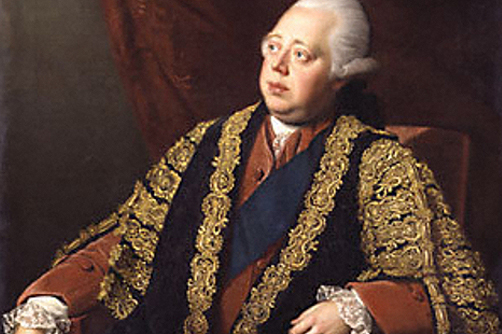

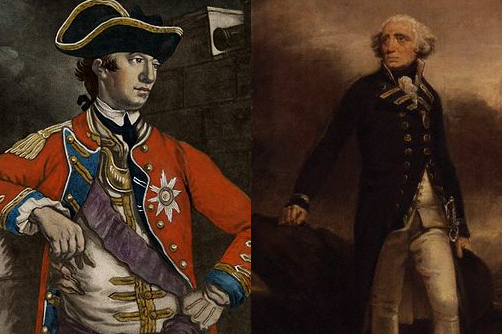

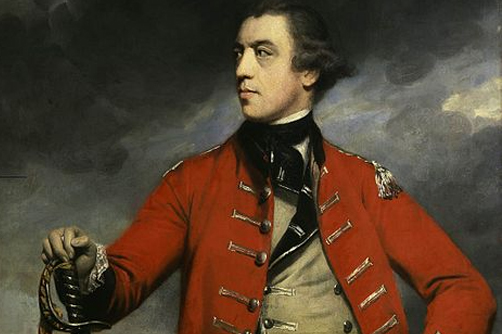
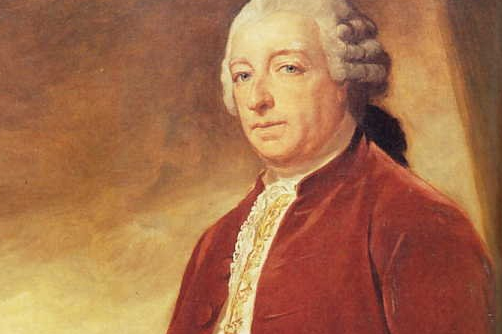

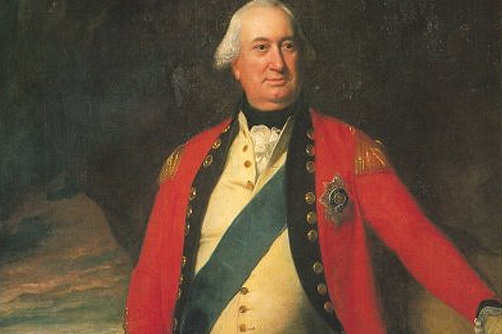
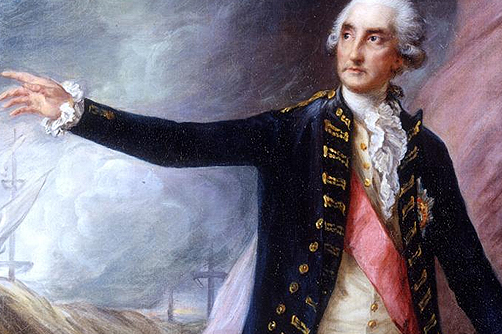


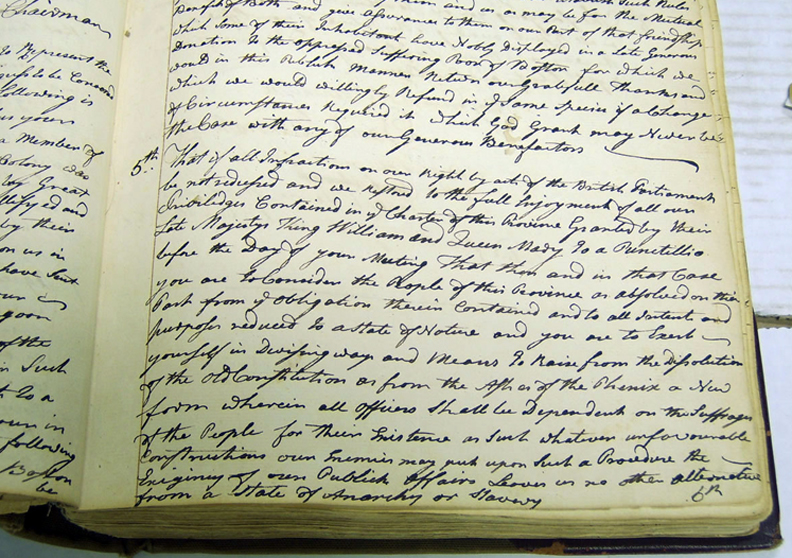


4 Comments
Welcome to Journal of the American Revolution (JAR), Andrew! I’m a huge fan of The Men Who Lost America and have listened to the audio book twice already. You do a great job peeling the onion on each individual. Coincidentally, a review of your book by JAR Editor Hugh Harrington will be publishing here in early April. Congrats on your well-deserved success and, again, welcome to the JAR team of 50+ contributors. I look forward to meeting you in person this weekend in Williamsburg.
Thanks for the great read. I look forward to reading your book. It seems as if each one of these men were remarkable and talented in their own ways, yet despite this, they were handicapped by a bureaucratic system and world events outside of their control. That and more than a few clashing egos.
Great Top Ten List, and it really highlights your book, Andrew, which I must say that I savored in last summer’s reading. Your writing style made the British figures of the Revolutionary War, sort of stock characters prior to reading your book, really come alive. I rolled with laughter with your Horace Walpole quote about Lord North’s eyes. I found it very interesting that King George III had a “domino theory” of sorts “that Britain would cease to be a great power if it lost America.” By losing America, he said the next pieces to fall would be the West Indies and Ireland. When in my own life had I heard a similar domino theory? And who knew King George was a really good clock repair guy? Loved your book and look forward to hearing your talk this weekend.
Outside the box a bit, but what about the Loyalists (either as a collective group or particular individual)?